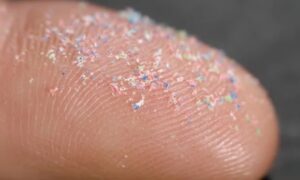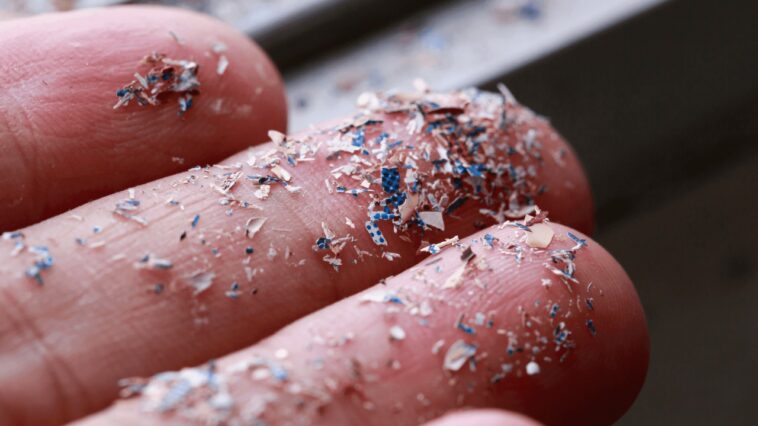In a groundbreaking study, Chinese scientists have discovered microplastics pollution in every single human semen sample tested. This finding has sparked urgent calls for further research into the potential impacts on reproductive health.

The study, conducted in Jinan, China, analyzed semen samples from 40 healthy men undergoing premarital health assessments. The presence of microplastics was confirmed in every sample, highlighting the pervasive nature of plastic pollution. This isn’t an isolated incident: recent studies in Italy and further research in China have also found microplastics in human semen samples, indicating a global issue.

The implications are troubling. Human sperm counts have been declining for decades, with 40% of low counts remaining unexplained. Many studies have linked this decline to chemical pollution, with microplastics now emerging as a significant suspect. Previous research in mice has shown that microplastics can reduce sperm count, cause abnormalities, and disrupt hormone levels.
Microplastics, tiny particles of plastic less than 5 millimetres in size, are omnipresent. They have been found everywhere from the highest peaks to the deepest oceans, and people are inadvertently consuming them through food, water, and even the air. Recent studies have also detected microplastics in human blood, placentas, and breast milk, underscoring the pervasive contamination of our bodies.
The specific plastics identified in the semen samples included polystyrene, polyethylene, and PVC—materials commonly used in packaging and everyday products. These plastics may cause inflammation in tissues or release harmful chemicals, posing risks to human health.
Experts emphasize that urgent action is needed to address this issue. With millions of tonnes of plastic waste entering the environment annually, the situation is only expected to worsen. A UN treaty is currently under negotiation by more than 180 nations to regulate plastic and reduce pollution, reflecting the global concern over this issue.
As Dr. Luigi Montano from the University of Rome stated, “Intervention is necessary to stop the exponential increase in plastic waste. If microplastic pollution continues to impact the critical reproductive process, as evidenced by declining seminal quality globally, it could have dire consequences for our species.”
In conclusion, while the full extent of the health impacts of microplastic exposure remains unknown, the findings so far are alarming. Understanding and mitigating human contamination from microplastics is crucial to safeguarding reproductive health and overall well-being.
Image source: Internet
Disclaimer: Educational purpose blog with no commercial use intended.
Read More: Tathastu Media
For Lifestyle Content: Tathastu Lifestyle



